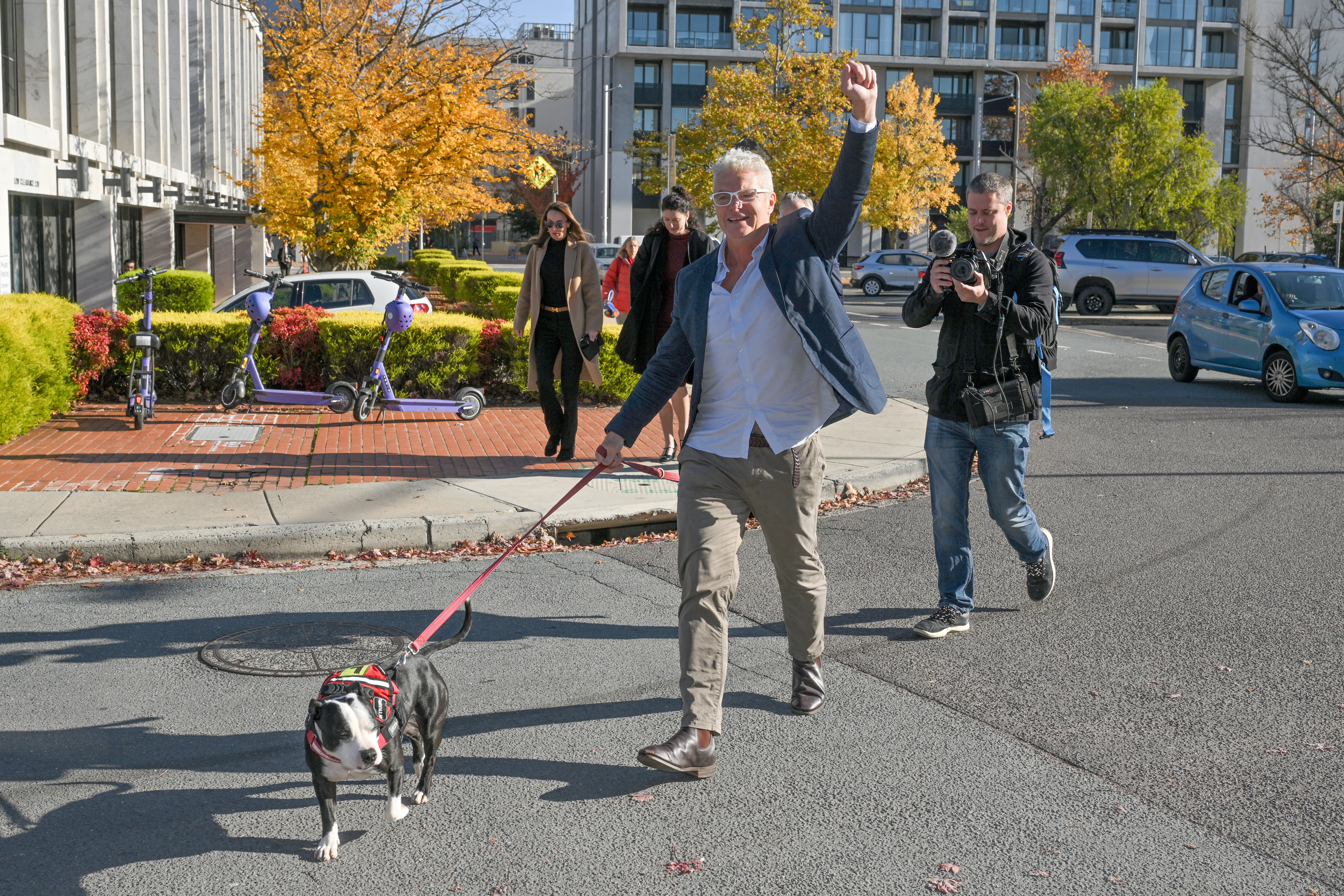David McBride: Australian court jails war crimes whistleblower in landmark case
McBride will serve non-parole period of 27 months

Your support helps us to tell the story
From reproductive rights to climate change to Big Tech, The Independent is on the ground when the story is developing. Whether it's investigating the financials of Elon Musk's pro-Trump PAC or producing our latest documentary, 'The A Word', which shines a light on the American women fighting for reproductive rights, we know how important it is to parse out the facts from the messaging.
At such a critical moment in US history, we need reporters on the ground. Your donation allows us to keep sending journalists to speak to both sides of the story.
The Independent is trusted by Americans across the entire political spectrum. And unlike many other quality news outlets, we choose not to lock Americans out of our reporting and analysis with paywalls. We believe quality journalism should be available to everyone, paid for by those who can afford it.
Your support makes all the difference.An Australian court sentenced a whistleblower to five years and eight months in prison for sharing classified information about the country’s alleged war crimes in Afghanistan.
David McBride, a former military lawyer, pleaded guilty to three charges of stealing and unlawfully sharing more than 200 documents classified as secrets.
The Australian Broadcasting Corporation used the information provided by McBride in 2017 as the basis for its investigative series “The Afghan Files”, which provided an unprecedented insight into alleged war crimes committed by Australia’s elite special forces in Afghanistan.
A four-year investigation, known as the Brereton report, found in 2020 that Australian special forces allegedly killed 39 unarmed prisoners and civilians in Afghanistan between 2005 and 2016. Australia referred 19 current and former soldiers for potential criminal prosecution.
McBride, 60, admitted to supplying documents to the broadcaster, but said it was in the national interest. The whistleblower told the court he was concerned about the attitudes of commanders and the "over-investigation" of troops.
Supreme Court justice David Mossop rejected McBride's argument that he did not believe he was breaking the law. The judge found the offences were aggravated by his high-security rating, which gave him access to the materials.
The court rejected the defendant's lawyer's plea for leniency citing his "honourable" intentions.
Mr Mossop said the whistleblower appeared to have become obsessed with the correctness of his own opinions. Sharing classified military information was "a gross breach of trust", he said.
"It's important to deter others from such conduct. They must know that breaching their legal obligations … will be met by significant punishment."
The judge, however, accepted McBride's mental health condition, which included Post-Traumatic Stress Disorder (PTSD), may have had a minor contribution to the offending.
Surrounded by supporters, McBride arrived at the court in Canberra on Tuesday morning with his support dog. "I did not break my oath to the people of Australia and the soldiers that keep us safe," he said ahead of the sentencing.
He sat with his eyes closed for the nearly 150-minute-long sentencing with his support dog by his feet. The public gallery erupted with slogans of "you are a hero, David" after the judge pronounced his verdict.
Following the sentencing, McBride hugged his ex-wife and told her "it'll be fine", before being escorted out of the courtroom.
McBride will serve a non-parole period of two years and three months.
“It is a travesty that the first person imprisoned in relation to Australia’s war crimes in Afghanistan is not a war criminal but a whistleblower,” said Rawan Arraf, the executive director of the Australian Centre for International Justice.
Join our commenting forum
Join thought-provoking conversations, follow other Independent readers and see their replies
Comments